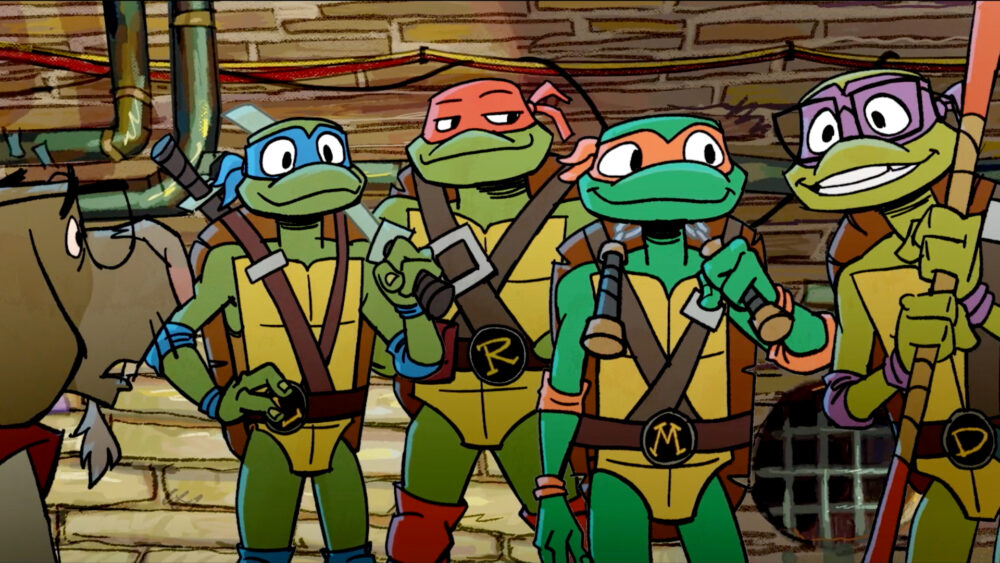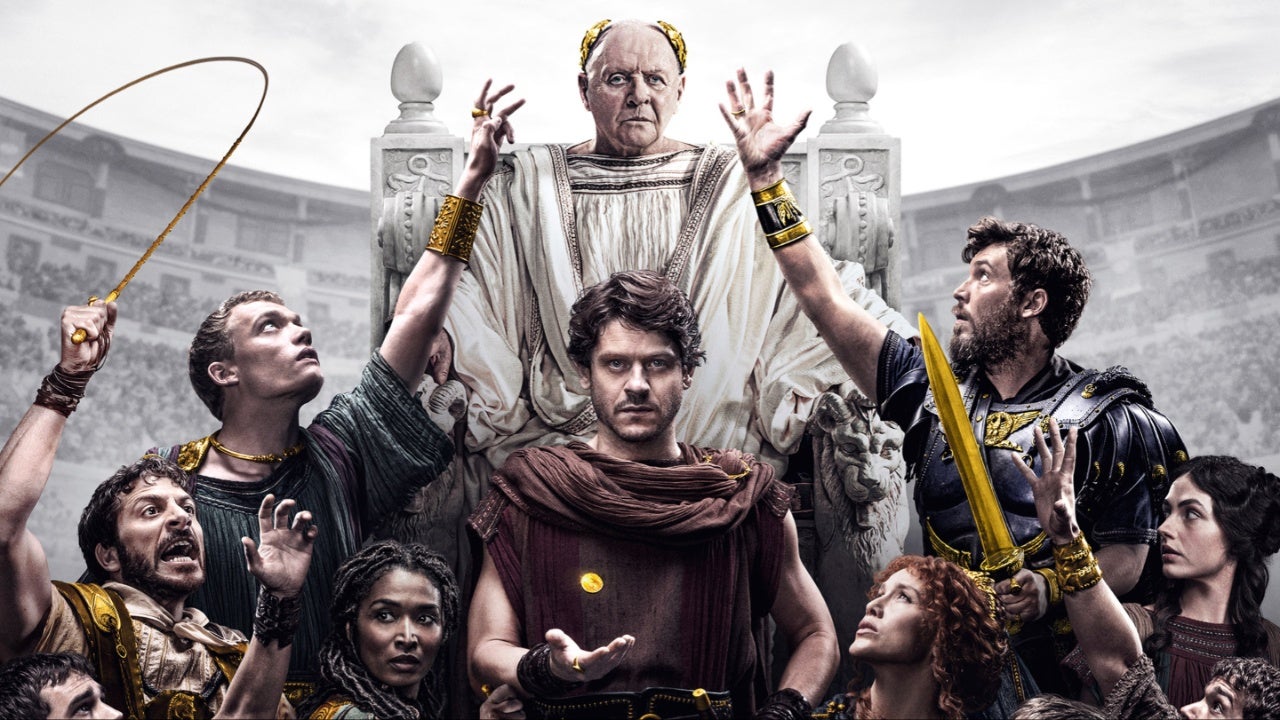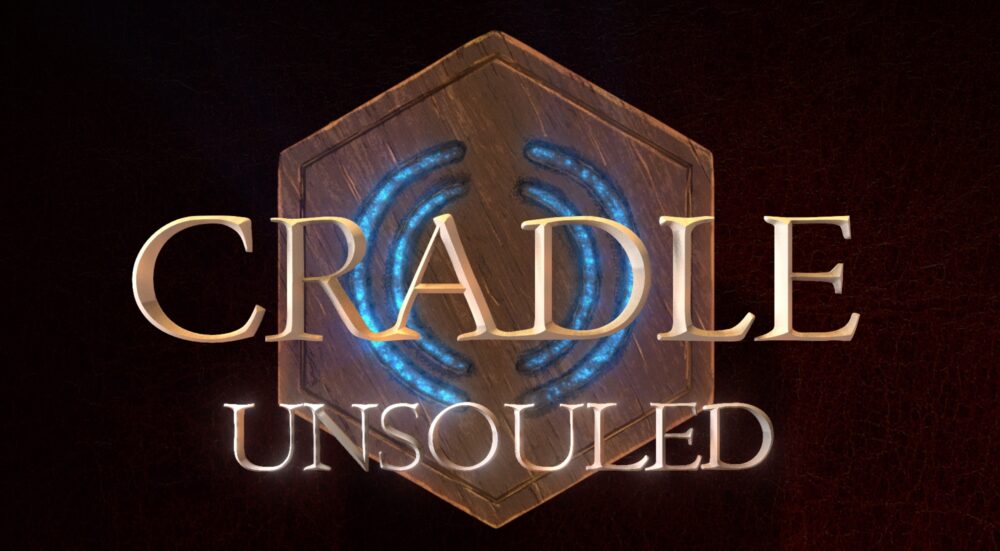There’s something about an action-packed storyline with science fiction flare and brilliantly executed martial arts work that never fails to capture an audiences’ imagination. The new Netflix series, Wu Assassins, delivers on all fronts and ushers in a true renaissance for martial arts as the centerpiece of a television show. Born from the legacy of the late Wing Chun, Kung Fu master turned movie star, Bruce Lee, Hollywood has been capitalizing on this phenomenon for five decades and counting. After Lee introduced the west to martial arts as entertainment, much of the culture was broken up and pilfered in bits and pieces, both, prior to and after Lee’s untimely death in 1973. As with the appropriation of any culture, the originators lose some ownership, while beneficiaries make great gains financially, physically, and even spiritually.
On the flipside, this cross pollination of cultural traditions, has paid humanity large dividends in the form of intercultural and interracial familiarity, greater tolerance for different cultures and a stronger sense of globalism around the world. In many ways, the global melting pot effect has been worth its weight in gold.
In a new era where artists are gaining more autonomy and creative freedom, shows like Dear White People, Black-ish, The Marvelous Mrs. Maisel and now Wu Assassins are allowing those that produce such content to spread the wealth while taking back power and ownership of their own cultures, and directing the narratives they want the world to see.
I had the pleasure of sitting down with two of the stars of Wu Assassins, Byron Mann and Tzi Ma, both born in Hong Kong, and both gifted actors and martial artists. Throughout our conversation, we discussed how Netflix’s most action-packed new series came together.

Wu Assassins Season 1 Photo Credit :Daniel Power / Netflix
Allison Kugel: What do you guys see as the connection between the martial arts and Hollywood?
Tzi Ma: Martial arts and Hollywood have a long history. Because the martial arts are so fascinating and so spectacular, Hollywood has always taken an interest in martial arts. It’s just that they couldn’t always re-produce the kind of martial arts that I believe Hong Kong cinema has presented to the world. Once they figured out how to do that, they really continue to try to adopt it. I think the fight sequences in American cinema and television, prior to the introduction of Hong Kong martial arts, I don’t want to say it’s not good, but it wasn’t as spectacular as what Hong Kong Cinema had to offer.
Byron Mann – I call it the Bruce Lee Effect, which was in the late 1960s and 1970s. I think Bruce Lee was probably one of the main catalysts in the last sixty years to bring Chinese culture and martial arts to the forefront of Hollywood in a big way. We’re still feeling the effect of Bruce Lee, today. If you’re an Asian male actor, chances are you will be cast, or they will ask to see if you can do some kind of martial arts in your role. I’ve certainly experienced that. I’m sure Tzi has experienced that as well.
Allison Kugel – What are your feelings about that? Do you feel honored by that legacy, or do you feel typecast by it?
Byron Mann: I have dual feelings about it. When I first started out in my career, all the roles were martial arts roles. Suddenly, I was the guy that does martial arts. He could be a lawyer, but he still did martial arts. He could be a doctor, and suddenly he is doing martial arts. At first, I didn’t mind because I thought it was fun. Then I got to a point where I thought, “Come on guys,” and I had to push back on it and say, There is no reason why this [character] should be doing martial arts. Now I’m reaching a third stage, where I am studying martial arts in my own life and appreciating that it came from thousands of years ago in China. In learning Chinese martial arts, I’m actually learning about my own culture.
Tzi Ma: My journey is kind of inverted from Byron’s. I began studying martial arts when I was ten years old. I had stopped studying it because I wanted to focus on acting. I felt that if I was going to be a martial artist then I’m should be a martial artist, and If I’m going to be an actor then I’m should pursue acting as opposed to pursuing a career where I’m going to fight. So, I avoided it like the plague, particularly when martial artists at one time in Hollywood were mainly villains. For a long time, the way scripts were written, the hero was always white, and the victim was always an Asian woman. I made three rules for myself early on in my career. One: if you want me to be the bad guy, then the heroes must be Asian or Asian Americans; Two: there’s no Asian or Asian-American woman being victimized; and Three: there’s a balance of good and evil distributed evenly by race.
Allison Kugel: When did you see the tide turning in your favor?
Tzi Ma: When I saw the movie Rapid Fire, in which Brandon Lee was the hero, I felt that finally we had an opportunity for the Asian hero to come in and save the day, and where all the victims were organized crime figures. And there was no Asian or Asian American woman victimized. A lot of times the scenario back in the day was that the Asian woman was somehow sexually or physically violated and then you have the white hero who comes in and saves the day, and she goes to bed with him. I can’t buy that scenario and it’s offensive to me.
Allison Kugel: Why do you think Netflix has decided to take a chance on the martial arts/sci-fi genre at this time, with Wu Assassins?
Tzi Ma: Action/Adventure is very easy to sell because there is no explanation necessary; a fight is a fight and a car chase is a car chase. It’s easy for the audience. The martial arts of late have experienced some recent changes, stylistically. I think that the fights are a lot more realistic given all the popularity with MMA and with UFC. All those things have re-sparked an interest in the martial arts genre. Netflix, at this point, their subscription base is saturated in the United States and they need to expand globally. I think this genre is a good opportunity for them to use as a vehicle to introduce the world audience to Netflix.
Byron Mann: I had a conversation with Chris Regina, an executive at Netflix who was instrumental in getting our series made, and he said that prior to Wu Assassins there hadn’t been any shows on Netflix that predominantly featured martial arts. And it’s true that action is the easiest genre to sell around the world. John Wirth, our showrunner, wanted to create more than just a martial arts show. He wanted to create a show that represents Asian-Americans, in general, and a show about family. It’s these three things all mixed into one.

Wu Assassins Season 1 Courtesy of Netflix
Allison Kugel: There’s a spiritual aspect to the show because you have the five elements of earth represented, and Byron, your character’s superpower is fire. Can you speak to the spiritual and moral aspects of the show and how these five elements come into play?
Byron Mann: It was a good entry point into this world that the show brings you into. The five elements are prominently featured in Chinese mythology. And in terms of the morality and spirituality, my character, Uncle Six, his morality started and ended with his adopted son, Kai Jin, who is played by Iko Uwais. His son was his morality. His son was what caused him to go from the dark to the light. And he didn’t quite want to. I think his love for his son caught him by surprise.
Tzi Ma: John Wirth is really a special individual and Byron and I know that because we also experienced it with him in Hell on Wheels. Here is an individual who really pays attention to what your point of view is, because he doesn’t look at us from his point of view. He is trying to look at the world through our point of view; through our eyes. The five elements are really important in Chinese culture. Chinese medicine is based on these five elements. John hired Asian American writers in the writer’s room. The show goes a lot deeper than just martial arts as Byron pointed out. Not only do you have the sci-fi Supernatural aspect, but you also have the balance of this kind of reality about the people who make their living in San Francisco’s Chinatown. Eventually or subconsciously the audience is going to be able to absorb some of these things without being hit over the head with a representation of Asian-Americans within a television series.

Wu Assassins Season 1 Photo Credit :Daniel Power / Netflix
Allison Kugel: Let’s talk about the fight scenes. How much of it is you doing the actual fighting, how is it all choreographed and what type of martial arts are you using?
Byron Mann: The form of martial arts that was predominantly featured in Wu Assasins is called Silat; an Indonesian martial art. It has a lot of grappling and the moves are fast, less flowery, and more straight-forward. Iko Uwais brought his team of choreographers from Indonesia to choreograph the fights. They worked in conjunction with two very good fight choreographers and stunt coordinators, Dan Rizzuto and Kimani Ray Smith. We had rehearsal times, and they varied depending on the schedule. Sometimes we had a week to rehearse the scene, sometimes we had two days, and sometimes we did it on the day that we rehearsed it.
Allison Kugel: Are they shot as one continuous sequence or are you stopping a lot?
Byron Mann: Generally, action is shot in parts. It’s boom boom boom and cut; then boom boom boom and cut. They do this so they can feature some close-ups and inserts. Secondly, not a lot of people can do continuous action well. You really need someone with very strong martial arts skills who can do those fight sequences continually for minutes at a time. Interestingly, in episode four, when Uncle Six fights with Kai Jin, it’s a big moment in the series where we go head-to-head, father and son. So for that particular scene, I lobbied that they show us fighting in a continuous sequence and that there would be no cuts. If you look at the episode four, you will see it. For that scene, I wanted the audience to know that we were not cheating them and not cutting things out.
Tzi Ma: You also have a cast who are really good at what they do, and Byron is no stranger to martial arts. You also have Lewis Tan who is a brilliant martial artist and of amazing pedigree; his father Philip Tan is an action director and stuntman. Then you have JuJu Chan who represented Hong Kong is Taekwondo in the Olympics and Katheryn Winnick, who is a taekwondo martial artist and black belt. So, you have a core group of people who really live up to the demands [of this show] and who can bring the goods. The fight sequences on our show, I would dare to say, are the best fights on TV today.
Allison Kugel: Both of you are originally from Hong Kong. What are your thoughts on how we live in the West in terms of things like health and wellness, and the way we live our lives in general?
Byron Mann: The place with the greatest longevity in the world is Hong Kong. My take on it is that when you get older in life in Hong Kong, people there have a general tradition where every Sunday you get together with your family for lunch, or dim sum, or for dinner. I’ve lived in China, in Canada and in the United States. You see less of that happening in other places. In Hong Kong, as people get older they are surrounded by their family, their children, their grandchildren and their friends any day of the week. It keeps them going emotionally. In Hong Kong, no one buys or eats processed food. Everybody goes down to the marketplace and buys fresh fish, chicken, beef, fruits and vegetables. That leads to longevity. You see a lot less of that in the west.
Tzi Ma: I did not grow up in Hong Kong. I was born in Hong Kong, but I was brought up in New York City. So, my experience is similar to yours, but I’m learning from Byron. Maybe I should move back to Hong Kong since it has such benefits!

Wu Assassins Season 1 Photo Credit :Daniel Power / Netflix
Allison Kugel: What do you hope audiences will gain from watching Wu Assassins?
Byron Mann: Usually the audience’s reaction catches me by surprise. There is a scene in episode seven where Uncle Six (played by Mann) and Kai Jin (played by Iko Uwais) are eating in a very rural neighborhood and there’s a big interaction with a waitress who has racist views. In that scene, I give her a long speech about the history of Chinese people in America, and how they were discriminated against systematically. When I read the scene I just thought, “People are going to be so bored with this because it’s like a history lesson. Who wants to see that in an entertainment show?” I just did the scene to the best of my ability and left it at that. Since the show has come out, people have gravitated towards that scene, and not just Asian people; all types of people have mentioned that scene to me over and over again. That totally caught me by surprise. In that respect, I hope the show can galvanize good, positive conversations that will help this country, or help the world today. We need more of these positive energies to unite people, not to divide people.
Tzi Ma: Byron really hit the nail on the head. Any show that allows the world audience to at least have an opportunity to correct the perception of who we really are is important. I think Wu Assassins offers that without giving you a lecture about it. Martial arts and supernatural are very popular genres in entertainment, so for me it is like a delivery system to [introduce who we are] to the world. What we try to deliver is something for the world audience to understand who we are as Asians and as Asian-Americans; as a community and as a people.

Events
Paramount+ Reveals Official Main Title Sequence for the Upcoming Series TALES OF THE TEENAGE MUTANT NINJA TURTLES

During the TALES OF THE TEENAGE MUTANT NINJA TURTLES panel earlier today at San Diego Comic Con, Paramount+ revealed the official main title sequence for the series. The sequence is composed by EMMY® nominee, Matt Mahaffey, known for his work on Sanjay and Craig, Rise of the Teenage Mutant Ninja Turtles, and Rise of the Teenage Mutant Ninja Turtles: The Movie and much more.
From the studios of the Mutant Mayhem film, the all-new Paramount+ original series TALES OF THE TEENAGE MUTANT NINJA TURTLES explores the adventures of everyone’s favorite pizza-loving heroes as they emerge from the sewers onto the streets of NYC. Leo, Raph, Donnie and Mikey are faced with new threats and team up with old allies to survive both teenage life and villains lurking in the shadows of the Big Apple. The series is produced by Nickelodeon Animation and Point Grey Pictures.
TALES OF THE TEENAGE MUTANT NINJA TURTLES is executive produced by Chris Yost (The Mandalorian, Thor: Ragnarok) and Alan Wan (Blue Eye Samurai, Rise of the Teenage Mutant Ninja Turtles, Teenage Mutant Ninja Turtles [2012 Series]). Production is overseen for Nickelodeon by Claudia Spinelli, Senior Vice President, TV Series Animation, Nickelodeon, and Nikki Price, Director of Development and Executive in Charge of Production.
In addition to the upcoming new series, stream all things Turtles on Paramount+.
Events
Comic-Con 2024: Those About to Die Activation
Events
DISNEY+ CASTS DANIEL DIEMER AS FAN-FAVORITE ‘TYSON’IN SEASON TWO OF “PERCY JACKSON AND THE OLYMPIANS”

in Hall H at San Diego Comic-Con, Rick Riordan and Disney+ revealed that Daniel Diemer (“Under the Bridge”) will star as fan-favorite cyclops “Tyson” in the epic adventure series “Percy Jackson and the Olympians.” Diemer joins Walker Scobell (Percy Jackson), Leah Sava Jeffries (Annabeth Chase) and Aryan Simhadri (Grover Underwood) as a series regular. The Disney+ Original series from Disney Branded Television and 20th Television will start filming its second season next week in Vancouver.
Season two of “Percy Jackson and the Olympians” is based on the second installment of Disney Hyperion’s best-selling book series titled “The Sea of Monsters” by award-winning author Rick Riordan. In the new season, Percy Jackson returns to Camp Half-Blood one year later to find his world turned upside down. His friendship with Annabeth is changing, he learns he has a cyclops for a brother, Grover has gone missing, and camp is under siege from the forces of Kronos. Percy’s journey to set things right will take him off the map and into the deadly Sea of Monsters, where a secret fate awaits the son of Poseidon.
Diemer stars as Tyson – a young Cyclops who grew up all alone on the streets, and finds it difficult to survive in the human world. Shy and awkward, with a heart almost as big as he is, Tyson soon discovers that Poseidon is his father, which means Percy Jackson is his half-brother… and that Tyson may have finally found a home.
Diemer recently starred in the Hulu limited series “Under the Bridge” based off the critically acclaimed book of the same name and a tragic true story of a missing teen girl in Vancouver in 1997. He will next star in the indie “Thug” opposite Liam Neeson and Ron Perlman for director Hans Petter Moland. Daniel was recently seen as the lead in the indie “Supercell” opposite Alec Baldwin and Skeet Ulrich and the lead in the film “Little Brother” opposite Phil Ettinger and JK Simmons. Daniel can also be seen in the Netflix series “The Midnight Club” and recently starred as the male lead in the breakout hit Netflix feature “The Half Of It” from producer Anthony Bregman and director Alice Wu. He is a graduate of Victoria Academy of Dramatic Arts in Vancouver.
Created by Rick Riordan and Jonathan E. Steinberg, season two of “Percy Jackson and the Olympians” is executive produced by Steinberg and Dan Shotz alongside Rick Riordan, Rebecca Riordan, Craig Silverstein, The Gotham Group’s Ellen Goldsmith-Vein, Bert Salke, The Gotham Group’s Jeremy Bell and D.J. Goldberg, James Bobin, Jim Rowe, Albert Kim, Jason Ensler and Sarah Watson.
The first season of “Percy Jackson and the Olympians” is available on Disney+
-

 Interviews2 days ago
Interviews2 days agoInterview With Heroes & Villains Creative Director Doug Johnson
-

 Streaming2 days ago
Streaming2 days agoApple TV+ announces season two for delightful kids and family series “Camp Snoopy
-

 Events2 days ago
Events2 days agoThat’s My E Coverage Of The Adult Swim’s Pirate Parrrty
-

 Events18 hours ago
Events18 hours agoParamount+ Reveals Official Main Title Sequence for the Upcoming Series TALES OF THE TEENAGE MUTANT NINJA TURTLES
-

 Events21 hours ago
Events21 hours agoDISNEY+ CASTS DANIEL DIEMER AS FAN-FAVORITE ‘TYSON’IN SEASON TWO OF “PERCY JACKSON AND THE OLYMPIANS”
-

 Events20 hours ago
Events20 hours agoComic-Con 2024: Those About to Die Activation
-

 Interviews21 hours ago
Interviews21 hours agoComic-Con 2024: Will Wight’s Cradle



